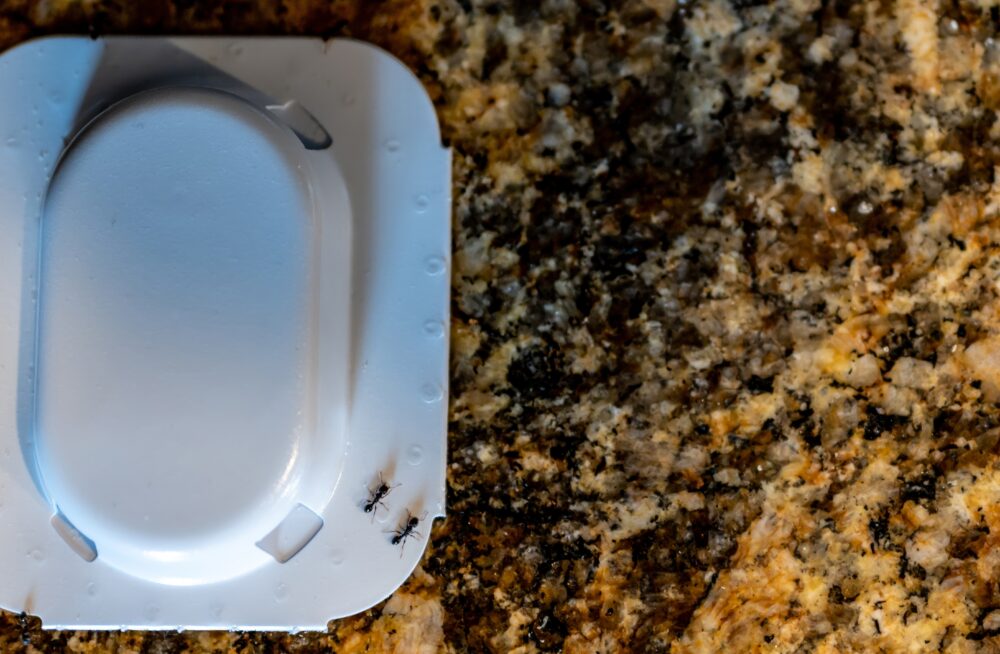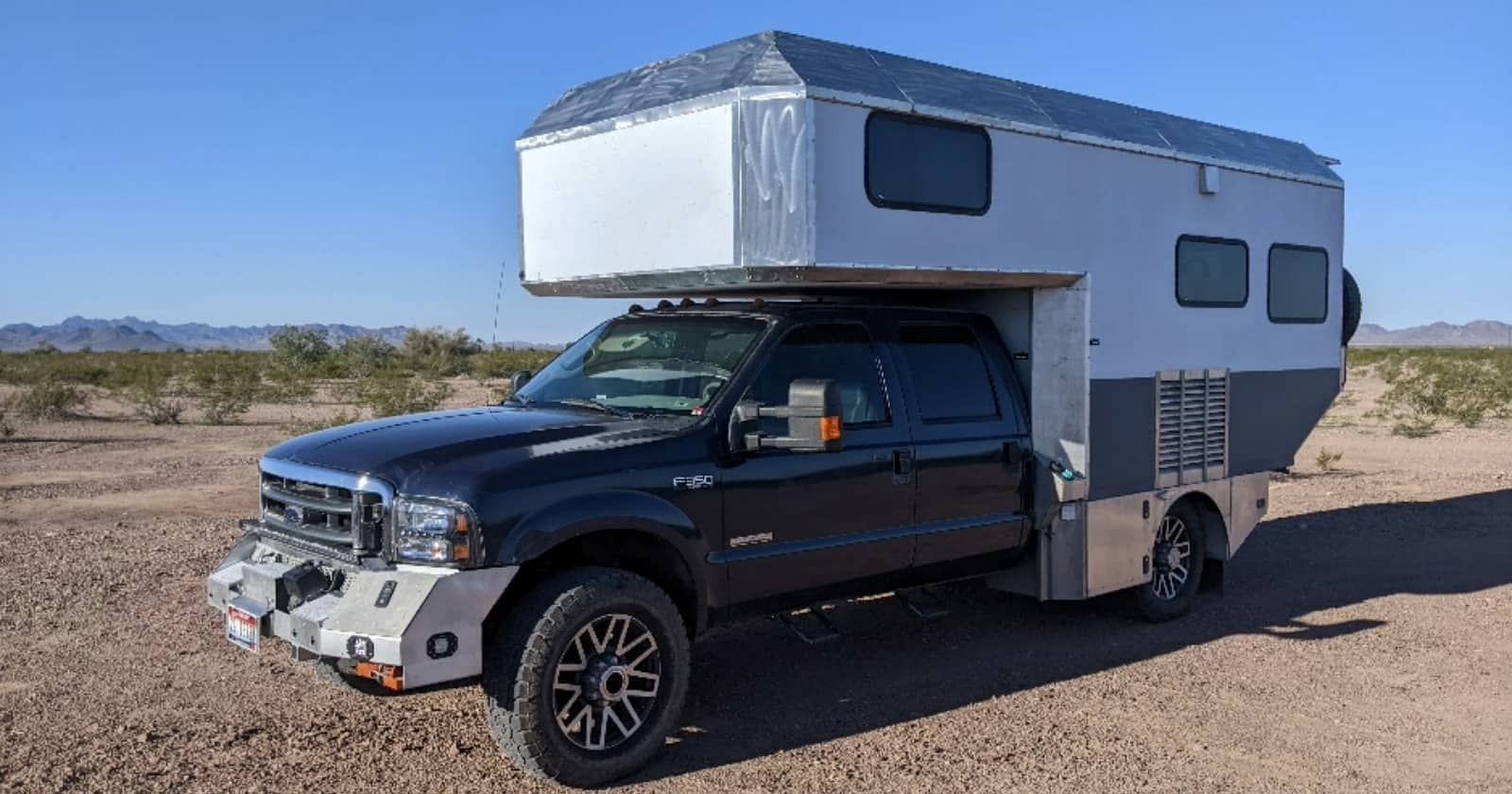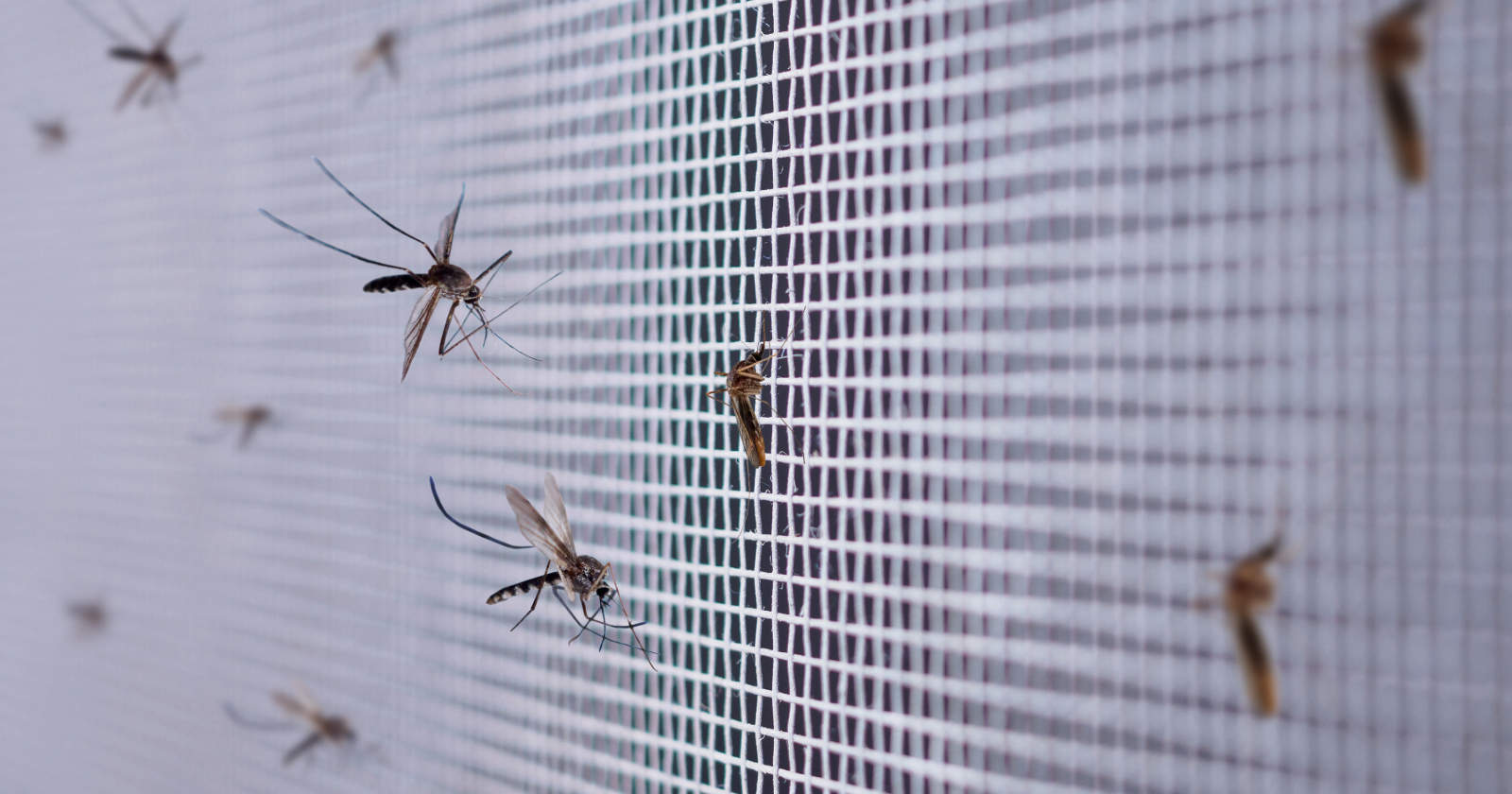
Ant Traps For RVs: The Best DIY & Store-Bought Options
Nobody likes to deal with creepy crawly visitors in their RV! Insects can be a real problem, and sometimes you can accidentally take them with you when you travel from one place to another. Ants are common pests, and they can be difficult to get rid of without proper ant traps and deterrents.
If you have discovered ants in your RV, it’s important to act as soon as possible. The more time you let them run unchecked, the worse the infestation can become. They can get into your food supplies, cabinets, cookware, and other nooks and crannies. It’s not hard to kill a single ant, but a swarm can be tricky to get rid of.
Fortunately, there are several products and substances you can use to trap, deter, or kill ants. In many cases, you can use items within your RV to deal with the problem, but store-bought solutions work great as well. In the sections below, we’ll explore some of the best ant traps you can try, as well as ways to ant-proof your RV.
Store-bought ant traps
If you want to opt for a chemical solution to an ant infestation, you’re in luck. There are plenty of powerful traps, sprays, and deterrents that can keep ants at bay. If you want a quick and powerful solution, one of these might be your best bet! They can sometimes introduce harmful chemicals into your living space though, so be careful if you use them.
Poisoned bait
One of the most popular ways to kill ants is with poisoned bait. Ants are attracted by scent and they can easily seek out anything that smells like food! Bait traps are highly effective because the ants will eat the poisoned food, then bring it back to their colony to share. Eventually, the poison will spread throughout the whole group and kill them off.
The main drawback of bait traps is that children and pets can sometimes get into them. In this case, you may want to use a wall-mounted product so that insects can climb up to reach it, but other passengers in the RV can’t.
Ant Perimeter/Barrier
You can also try to keep ants out of your RV by creating a barrier around your vehicle. Ants don’t want to walk through substances that are harmful or foul-smelling, so they will generally stay away if you make a perimeter.
There are lots of products you can use for this type of ant trap. Amdro Ant Block is a great store-bought option, but you can also use Comet cleaning powder, diatomaceous earth, baby powder, and more. Create a barrier with these products and refresh it every few days.
Ant Mound Killer
Sometimes ants may move in and out of your RV if they have a colony somewhere else. But if they have set up a base within your vehicle, you can try to target their home base. Chemical products can be poured directly onto the ant mound to kill the queen and any workers inside.
Once you identify the ant mound or anywhere where they have set up shop, pour a product like Ortho Orthene Fire Ant Killer into the hole. It should kill most or all of the ants within the hour!
Insecticide sprays
An ant mound is an easy target, but sometimes you might not be able to locate the ant colony. In this case, you can take a hands-on approach by using a deadly insecticide spray. These will kill stray ants on contact and prevent them from stealing your food.
There are several different options here. Some are toxic to humans and insects alike, so you shouldn’t use these within your RV. Others are safe for humans to be around, plus they’re non-staining! These are preferable, but they may not be as powerful.
Glue traps
Another ant trap you could try is sticky tape or glue strips. These are often imbued with a pleasant smell that attracts ants and other insects. Once they step onto the surface, their feet get stuck and they die from starvation. Glue traps work well for a few stray bugs, but they might not be able to get rid of a full infestation.
Fogger/exterminator
If everything else fails, you could call in the big guns and get an exterminator on board. They generally have targeted and aggressive ways to get rid of pests. Foggers, heat treatments, and other dangerous techniques should only be used by professionals.
Natural/DIY methods
You rarely need to use exterminators and other extreme methods to deal with a few ants. In many cases, household blends and DIY solutions work just as well (if not better). So, before you gas your entire RV, try a few of the ant traps and deterrents below.
Cornmeal
A great way to kill ants in your RV is to set out some cornmeal. The insects will be attracted by the smell of this food. But once they eat it and drink water, the cornmeal will expand in their stomach and kill them from the pressure. If they bring cornmeal back to the colony, the same result will spread throughout the group. Keep it up for a few weeks and your ant problem should resolve itself!
Sweet but deadly mixtures
If you don’t want to buy chemical ant traps, you can create your own with items in your kitchen. The general recipe is to mix something sweet with something deadly to ants.
One good solution is powdered sugar mixed with baking soda. The fine white particles blend together easily so the ants will ingest both. You can also use borax, but be very careful if you have pets.
If you want a more liquid solution, try a blend of honey and boric acid! It’s the same general effect, but the ants will drink it instead of tracking through the powder.
Essential Oils
Ants are sensitive to powerful smells. That’s why they can identify food from a distance! But it’s also a weakness that you can exploit by using potent essential oils. Peppermint oil is the most common deterrent. You can place it in a diffuser, or soak cotton balls and place them around your RV entrances.
Deterrent sprays
Ants communicate with each other via pheromone trails. If you remove these paths, they will have a harder time getting into your RV and stealing food. Easy DIY sprays include mixtures of water and vinegar. You can also use cedar oil to deter ants and create boundary lines.
Natural deterrents
Finally, you can place other substances that ants hate around your RV. There are plenty of natural materials that they will avoid due to the smell. Some common preventatives include cinnamon, bay leaves, mint, and ashes. Just sprinkle these close to your RV entrances, or create a barrier around your kitchen.
How to ant-proof your RV
Ant traps and deadly chemicals can help you deal with unwelcome insects. But you can also avoid most infestations altogether if you successfully ant-proof your RV. Try some of the tips below to keep your living space bug-free!
- Keep food in sealed containers
- Clean up spills and crumbs as soon as possible
- Regularly spray and wipe your floors, countertops, sinks, and trash cans
- Place bug screens in your windows
- Seal exterior gaps around your slideouts, water lines, vents, etc. (Vaseline can prevent ants from entering here)
- Act fast if you spot ants in your vehicle
Get tips from other RVers
One of the best parts about RVing is engaging with the community of traveling enthusiasts. iRV2 forums allow folks to chat with other RVers online, and get other perspectives on everything RVing, including products, destinations, RV mods, and more.
Related articles:



